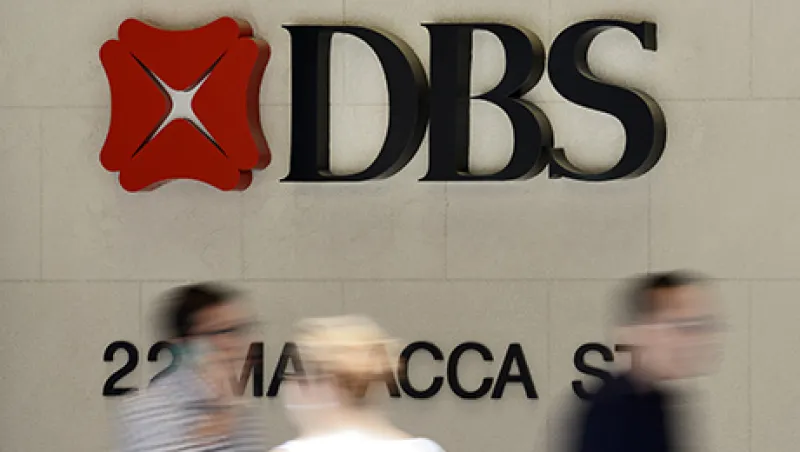
Pedestrians walk past a DBS Group Holdings Ltd. bank branch in Singapore, on Wednesday, July 31, 2013. DBS, Southeast Asia's largest bank, is scheduled to release second-quarter results on Aug. 1. Photographer: Munshi Ahmed/Bloomberg
Munshi Ahmed/Bloomberg

